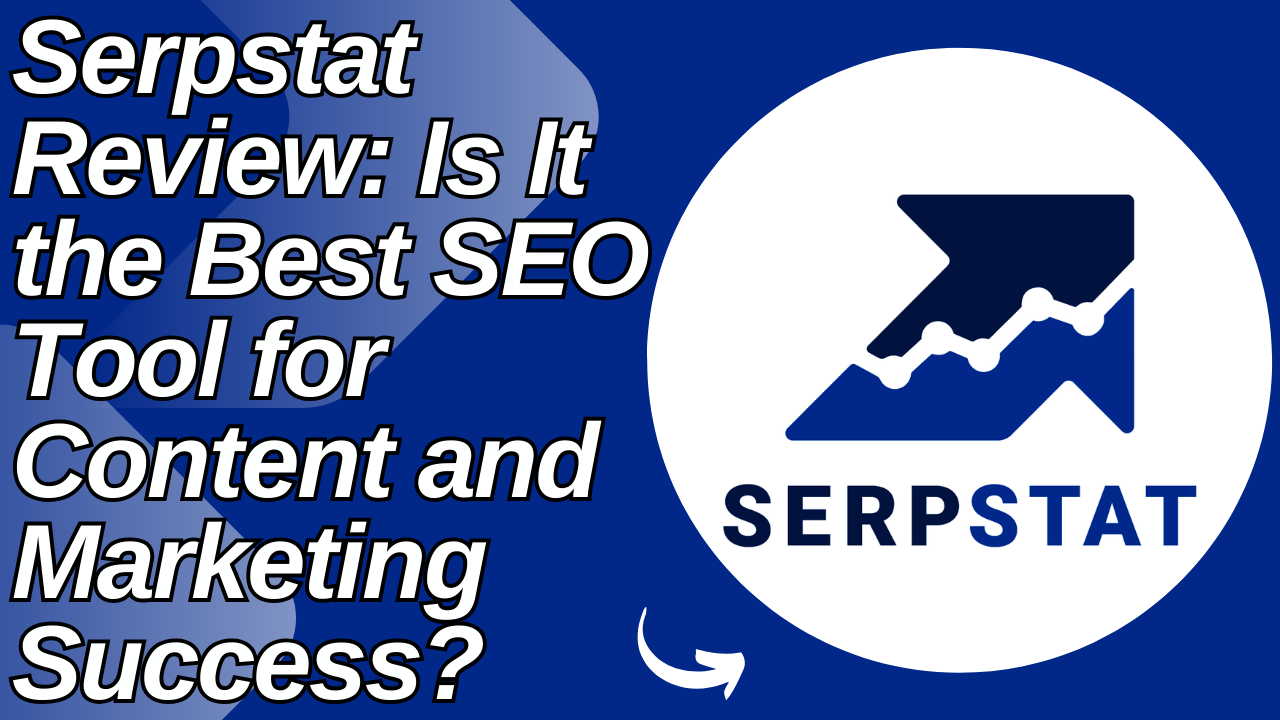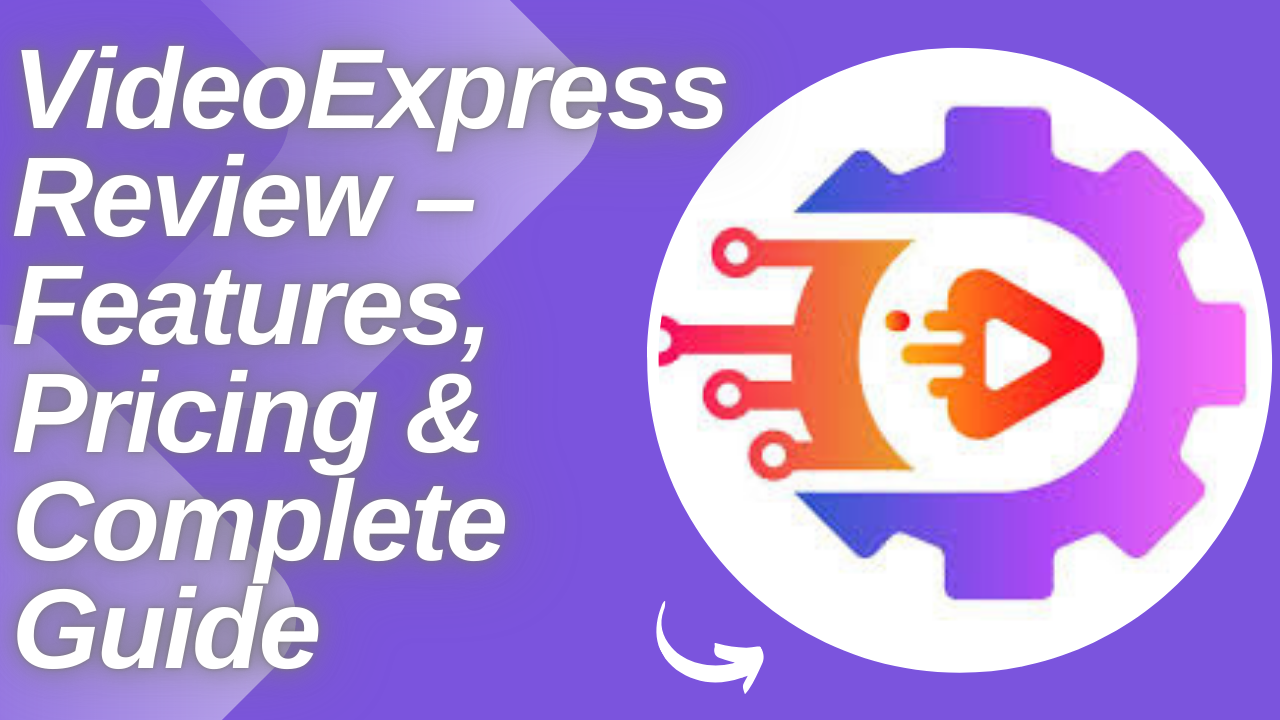Search engine optimization (SEO) has become the backbone of digital marketing. Whether you are a blogger, an eCommerce owner, or a digital marketer, ranking higher on Google means better visibility, more traffic, and ultimately, more conversions. To achieve this, you need a reliable SEO tool that not only tracks rankings but also provides insights for content creation, keyword research, competitor analysis, and backlink management.
One of the tools gaining attention in the SEO community is Serpstat. But the big question is: Is Serpstat worth it, and can it really compete with big names like SEMrush, Ahrefs, or Moz?
In this review, we’ll take a detailed look at Serpstat’s features, pricing, advantages, limitations, and how it can help businesses succeed in today’s SEO landscape.
What is Serpstat?
Serpstat is an all-in-one SEO platform designed for marketers, content creators, and businesses of all sizes. Originally launched as a simple keyword research tool, it has now evolved into a full-fledged SEO and digital marketing solution.
With Serpstat, users can perform keyword research, track rankings, analyze competitors, audit websites, and monitor backlinks—all from a single dashboard.
The main goal of Serpstat is to make SEO insights accessible to everyone, from beginners to professionals, at a cost-effective price compared to other premium tools.
Why Businesses Need SEO Tools Like Serpstat
Before diving deep into Serpstat’s features, let’s understand why SEO tools are so important.
- Keyword research helps identify search queries that drive traffic.
- Competitor analysis reveals strategies used by top players in your niche.
- Backlink monitoring ensures you can build and manage quality links.
- Site audits detect errors that might prevent your site from ranking.
- Content optimization improves readability, relevance, and keyword placement.
Without the right tools, doing SEO is like driving blind. Serpstat promises to simplify this process with data-driven insights.
Key Features of Serpstat
1. Keyword Research
Serpstat’s keyword research tool provides a wide range of data, including:
- Search volume
- Keyword difficulty
- CPC (cost per click) for paid campaigns
- Related keywords
- Long-tail variations
This makes it easy for content writers and marketers to find keywords that are not only popular but also realistic to rank for.
2. Competitor Analysis
Understanding what your competitors are doing is essential. Serpstat allows you to analyze competitor websites and discover:
- Their top-performing pages
- Keywords they rank for
- Paid search ads they run
- Backlink profiles
This helps you design strategies that can outperform your competitors in both organic and paid search.
3. Rank Tracking
Serpstat’s rank tracking feature monitors how your keywords are performing over time. You can track daily, weekly, or monthly rankings across different devices and locations.
This is especially useful if you are targeting multiple countries or cities, as Serpstat provides localized ranking insights.
4. Site Audit
Website health is critical for SEO. Serpstat’s site audit tool scans your website for technical errors such as broken links, missing meta tags, duplicate content, and slow-loading pages.
It then provides actionable recommendations to fix these issues, which directly improves search rankings and user experience.
5. Backlink Analysis
Backlinks are one of the strongest ranking factors for Google. Serpstat’s backlink tool helps you:
- Discover new backlinks
- Analyze anchor texts
- Track lost or removed backlinks
- Compare backlink profiles with competitors
This makes link-building campaigns more strategic and data-driven.
6. Content Marketing Tools
Serpstat also assists in content optimization by showing which topics are trending and what type of content your competitors are publishing.
Writers can use this feature to craft blogs and articles that have a higher chance of ranking and engaging readers.
7. API and Integrations
For advanced users, Serpstat offers API access that allows integration with other platforms like Google Data Studio. This makes reporting and analytics more efficient for agencies and large teams.
Serpstat vs. Other SEO Tools
Serpstat vs. SEMrush
SEMrush is more advanced in terms of database size and marketing integrations, but it comes at a higher price. Serpstat offers competitive features at a more affordable rate, making it ideal for small to medium businesses.
Serpstat vs. Ahrefs
Ahrefs is excellent for backlink analysis, but Serpstat provides a more balanced toolkit, covering keyword research, site audits, and competitor tracking.
Serpstat vs. Moz
Moz has a strong reputation, but Serpstat’s interface is more modern and user-friendly. Additionally, Serpstat tends to provide more features for the same price.
Pricing Plans of Serpstat
Serpstat is known for being budget-friendly compared to other SEO tools. Its pricing plans generally include:
- Lite Plan: Suitable for freelancers and bloggers.
- Standard Plan: Best for growing businesses and agencies.
- Advanced Plan: Includes higher limits for large teams.
- Enterprise Plan: Designed for big organizations with heavy SEO needs.
The affordability of Serpstat is one of its strongest advantages, especially for startups and small agencies.
Advantages of Using Serpstat
- All-in-One Solution: Combines multiple SEO features in a single dashboard.
- Affordable Pricing: Offers competitive features at a lower price than most tools.
- User-Friendly Interface: Easy to navigate, even for beginners.
- Localized Data: Great for tracking rankings in different countries or cities.
- Scalable Plans: Suitable for individuals, small businesses, and enterprises.
Limitations of Serpstat
- Database Size: Smaller compared to SEMrush and Ahrefs.
- Learning Curve: Some advanced features require time to understand.
- Customer Support: Could be more responsive compared to top competitors.
Who Should Use Serpstat?
- Freelancers and Bloggers: Perfect for keyword research and basic SEO needs.
- Small to Medium Businesses: Affordable way to track rankings and optimize content.
- Agencies: Useful for managing multiple clients with API and integrations.
- E-commerce Owners: Ideal for tracking competitors and optimizing product pages.
Serpstat and Google AI Overview (SGE)
With Google’s AI Overview reshaping search results, SEO tools must adapt. Serpstat helps by:
- Identifying long-tail keywords that AI summaries are likely to pick.
- Analyzing competitor content that appears in AI-driven search results.
- Tracking how content performance changes as AI search evolves.
This makes Serpstat a valuable tool for staying ahead in the era of AI-powered search.
Serpstat and Google AdSense Guidelines
If your goal is to monetize with Google AdSense, Serpstat helps indirectly by:
- Ensuring your site has optimized, original content.
- Helping you avoid duplicate or thin content issues.
- Improving user experience with site audit recommendations.
High-quality, SEO-friendly content is more likely to be approved for AdSense and generate sustainable earnings.
Final Verdict: Is Serpstat Worth It?
Yes, Serpstat is definitely worth considering, especially if you are looking for a budget-friendly yet powerful SEO tool. While it may not completely replace premium tools like SEMrush or Ahrefs, it provides a strong combination of keyword research, rank tracking, site auditing, and backlink analysis.
For bloggers, freelancers, small businesses, and even agencies, Serpstat offers a practical solution to improve search rankings and optimize content strategies without overspending.
Conclusion
SEO is no longer optional—it is essential for online visibility. Tools like Serpstat play a crucial role in making SEO strategies more data-driven and effective.
If you are looking for an affordable, feature-packed SEO platform that helps with keyword research, competitor analysis, backlink tracking, and site audits, Serpstat is a smart choice.
By combining Serpstat with good content writing practices, proper on-page optimization, and Google AdSense compliance, you can build a strong foundation for long-term digital success.
FAQs: Serpstat Review
1. What is Serpstat and how does it work?
Serpstat is an all-in-one SEO and digital marketing tool that helps with keyword research, rank tracking, competitor analysis, backlink monitoring, and site audits.
2. Who should use Serpstat?
It’s ideal for bloggers, digital marketers, small to medium businesses, eCommerce owners, and agencies looking to improve SEO performance.
3. Is Serpstat beginner-friendly?
Yes, it has a user-friendly interface and clear instructions, making it easy even for beginners to navigate and use effectively.
4. Can Serpstat improve SEO rankings?
Yes, its features like keyword research, competitor tracking, and site audit reports help optimize content and improve search engine rankings.
5. Can Serpstat help with content creation?
Yes, it provides keyword insights, trending topics, and competitor strategies that help writers create SEO-optimized content.
6. Is Serpstat suitable for small businesses?
Absolutely. Its affordable plans provide essential SEO features that small businesses can leverage to compete with larger players.
7. Does Serpstat offer a free trial?
Yes, Serpstat offers trial options so users can test its features before choosing a paid plan.
8. How does Serpstat compare to SEMrush or Ahrefs?
While SEMrush and Ahrefs may have larger databases and advanced features, Serpstat offers a balanced set of tools at a more budget-friendly price.
9. Can Serpstat help with backlink analysis?
Yes, it allows users to monitor backlinks, analyze anchor texts, and track new or lost links to improve link-building strategies.
10. Is Serpstat suitable for agencies?
Yes, it supports multiple projects and client accounts, making it a practical choice for SEO agencies.
11. How accurate is Serpstat’s data?
The tool provides reliable and updated data for keywords, rankings, and backlinks to support informed SEO decisions.
12. Can Serpstat integrate with other tools?
Yes, Serpstat offers API access and integrates with platforms like Google Data Studio for advanced reporting.
13. Does Serpstat assist with content planning?
Yes, its keyword and competitor insights help marketers and writers plan content that is relevant, engaging, and likely to rank.
14. Can Serpstat be used for eCommerce websites?
Yes, it helps optimize product pages, analyze competitors, and improve keyword strategies for eCommerce SEO.
15. Is Serpstat worth investing in?
Yes, it’s a cost-effective, comprehensive SEO tool suitable for individuals, businesses, and agencies looking to improve rankings, content, and digital visibility.








